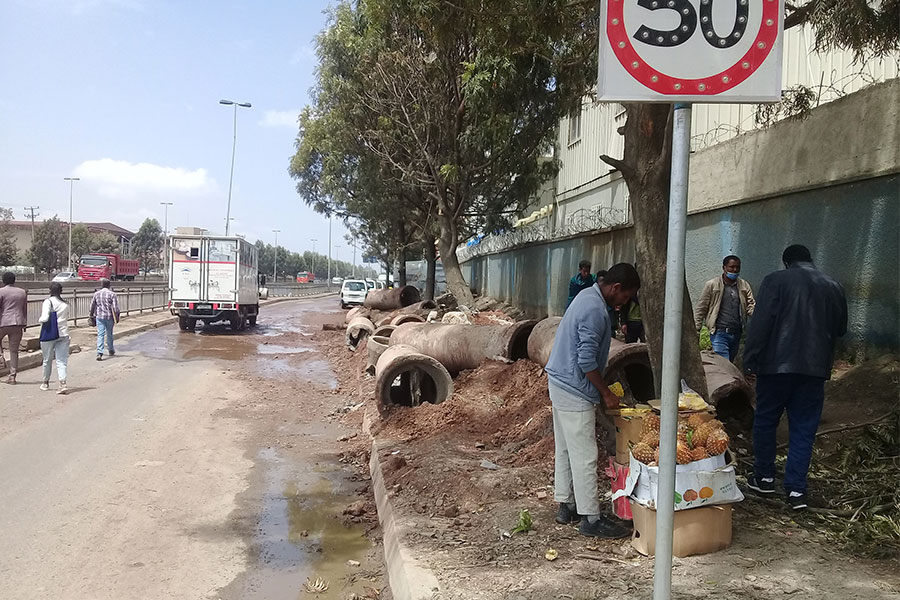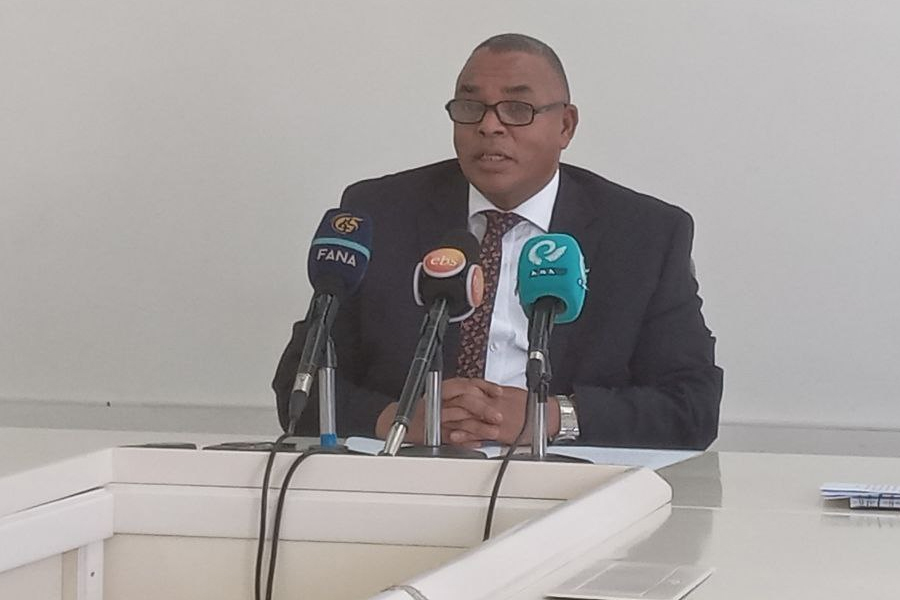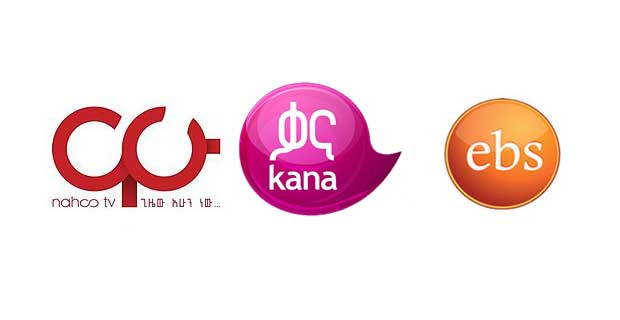
Radar | Oct 24,2020
Jan 4 , 2020
By Sileshi Yilma Reta
|
The media landscape has changed in recent years. Such a phenomenon is not peculiar to Ethiopia. It is a global issue. The mainstream media are constantly being challenged by the vastly expanding new form of information sharing platforms, including Facebook, Twitter and YouTube.
Revisiting one’s operation as well as business model is not a matter of choice but of survival. Underestimating or downplaying the threat that comes from these platforms can have serious repercussions.
Government-owned media outlets may to some extent withstand the financial challenge, considering they are publicly funded through taxes and the exclusive advertisement privileges they receive from state-owned institutions.
The case for the private media houses, whether print or electronic is, however, different. Their survival is not only being tested by the changing media sphere. They have long been crippled by internal and external factors. The scars of these challenges still fresh, the media outlets have in recent years been influenced by the emergence of the new media.
Meticulously designing and implementing a workable strategy to mitigate the threat should be in the media houses’ top priority list.
But what possible remedies are out there to withstand the constant competition posed by the new media?
There is no magic formula but there are various experiences we can take from the media industries of other countries around the world.
This can start by reconsidering breaking news. There is no doubt that breaking a story is every journalist’s dream. Media houses also strive to break stories, as they believe it can add more value to their reputation. Nevertheless, the trend has gradually shifted from the mainstream media to that of the new.
To recommend to the mainstream media to stay away from breaking stories may seem strange. This is understandable. But the trend from established media houses around the world testifies that shifting to other alternatives is a better way forward.
The rush to break news stories in recent years has emanated from the desire to compete with social media players to be the first to break news stories. Such tendencies were at times costly, tarnishing the reputation and credibility of many respected outlets. Media houses in Ethiopia have as a result become victims of misinformation and fake news.
It is much better to concentrate on gaining exclusive stories. No doubt, this is easier said than done. Exploring exclusive stories needs a lot of effort, devoted staff and resources. But if committed, the media houses can realise this and, in turn, collect better dividends.
One way of doing this is to focus on follow-up stories. For anyone familiar with the Ethiopian media landscape, what is evident is the dearth of reporting follow-up stories. This is unfortunate given the plethora of unfulfilled promises made by government officials over the years and the missed opportunity to hold them accountable to their own words.
I have on several occasions brought to the attention of reporters in mainstream media houses stories such as these to the public. To my surprise there has been little to no initiative from their side to try this avenue. This has been to the detriment of media consumers in need of original stories.
Another way to cultivate exclusive reports is to focus on public and private projects. Indeed, this needs time and financial as well as human resources. But such stories are worth the deep pockets given that they can create the ground for the media houses to set an agenda and influence discussions.
Project news items might also give the opportunity for the media consumer to escape the heavy dose of daily event reporting, which is abundant in the Ethiopian media landscape.
Almost everyone that organises or pays for an event wants media coverage. Thus they send invites to all the media houses they can. But once an audience reads or hears the story from a particular media outlet, they lack the interest to tune to another medium regarding the same event. More often the reports are filled with similar sound bites and quotes. One can rarely notice attempts to cover events which get huge media attention from a different angle and in-depth.
Hiring freelance regional stringers is also a great of way of garnering exclusive stories. It would be better to incorporate regional stringers if possible as permanent staff or at least on a freelance basis. But with the exception of government and government-affiliated media outlets, many media houses have little to no presence outside the capital city.
Private media houses rarely visit the countryside, usually only after invitation by the government (for example at times of project inaugurations) or the private sector to cover special occasions. Due to financial limitations and lack of human resources though, they rarely cover stories happening in the countryside and prefer to focus on Addis Abeba.
Media houses who strive for serious reporting can incorporate regional stringers at a reasonable price. They can contact staff members who work at universities, especially those who work in schools of journalism and communications. They can also search for talented students from universities in the same locations for this purpose.
The greatest challenge to exclusive news stories that can greatly benefit the public is lack of resources. The most evident means of addressing this is collaborative reporting or mergers.
Cooperative reporting is a rare commodity in the Ethiopian media environment. But it is vital to develop this culture in terms of, for instance, sharing costs and human resources. Collaborative journalism is a rapidly growing and evolving practice in the Western World.
Collaborative journalism allows the mainstream media to reach out, expose and report significant stories that those in the new media may not be able to produce due to a range of reasons. Collaborative work can also harness the media outlets’ sphere of influence, credibility and may even let them be taken seriously by the public at large and policy makers.
In order to withstand not only the pressure of social media but also financial constraints and costs, there may also be a need to go further than collaborative reporting and merge.
This may create the opportunity for media outlets to significantly reduce their costs and combine their resources to bring about significant influence in the public sphere and in government.
All of these recommendations may seem daunting. The areas I cited are uncharted territories or barely explored, at least in the Ethiopian context. But media houses need to take their time to experiment and find out if they can bring about changes or not. There is more to lose by not trying, whether these alternatives work or not than sticking to the status quo.
What is evident is that the media outlets cannot survive any longer by pursuing the old ways of doing things. Advancements in communication technology forces them to revisit their operational and business model and adjust to the existing reality. It is also advisable to uncover best practices from various parts of the world and use them with local contexts.
Ethiopia is currently at a crossroads. Media outlets that try to separate themselves from state propaganda outlets and activist media houses have a historical mission and responsibility to carry out their duty. They need to be extra cautious not to be easily manipulated into propagating misinformation and becoming propaganda tools.
It is also high time for media outlets which take journalism as a serious business to install fact-checking departments with dedicated teams to resist the barrage of fake news and misinformation being produced at an alarming rate. Otherwise, mainstream media will fizzle into insignificance, both to the detriment of political and national discourse.
[ssba-buttons] 
[ratemypost]
Put your comments hereN.B: A submit button will appear once you fill out all the required fields.Related Posts
Radar | Oct 24,2020 
Radar | Feb 29,2020 
Radar | Sep 08,2019 
Radar | Mar 26,2022 
My Opinion | Dec 04,2020 
Fortune News | Dec 10,2018 
Fortune News | Jun 11,2022 
Radar | Nov 11,2023 
Fortune News | Jul 27,2019 
Radar | Apr 27,2025 Most read
Photo Gallery | 180251 Views | May 06,2019 
Photo Gallery | 170446 Views | Apr 26,2019 
Photo Gallery | 161469 Views | Oct 06,2021 
My Opinion | 137265 Views | Aug 14,2021 ColumnsEditors' Pick
Exclusive Interviews

State Enterprises from Oracles to ApprenticesDec 22 , 2024 . By TIZITA SHEWAFERAW Charged with transforming colossal state-owned enterprises into modern and competitiv...
Agenda

Rising Costs, Inflation Threaten Insurance IndustryAug 18 , 2024 . By AKSAH ITALO Although predictable Yonas Zerihun's job in the ride-hailing service is not immune to...
Agenda

BREWING DISCONTENTJul 28 , 2024 . By TIZITA SHEWAFERAW Unhabitual, perhaps too many, Samuel Gebreyohannes, 38, used to occasionally enjoy a couple of beers at breakfast. However, he recently swit...
Fortune News

Electric Vehicle Push Leaves Investors in the LurchJul 13 , 2024 . By AKSAH ITALO Investors who rely on tractors, trucks, and field vehicles for commuting, transporting commodities, and f... CommentariesFinelineEditorial
Central Bank Misses the Mark on Forex Market SpeculationNov 1 , 2025 The National Bank of Ethiopia (NBE) issued a statement two weeks ago that appeared to... 
The Rules Multiply. So Does the Confusion, and UncertaintyOct 25 , 2025 The regulatory machinery is on overdrive. In only two years, no fewer than 35 new pro... 
Official Narratives Preach Recovery. People Don't Feel ItOct 18 , 2025 The political establishment, notably the ruling party and its top brass, has become p... 
The Human Flight a Failure of Political Imagination, Not a Mere Economic PolicyOct 11 , 2025 Ladislas Farago, a roving Associated Press (AP) correspondent, arrived in Ethiopia in... GallerySunday With EdenLife MattersFortune news
SHARIA-COMPLIANT BANKS WIN REPRIEVE, AWAIT REFORMNov 2 , 2025 The National Bank of Ethiopia (NBE) has scrapped the credit-growth ceiling that had s... 
Power Co. Unleashes Tariff Shock Rattling Crypto Mining IndustryNov 2 , 2025 . By SURAFEL MULUGETA The burgeoning data mining industry is struggling with mounting concerns following th... 
Berhan Bank Puts Skyscraper on HoldNov 2 , 2025 . By YITBAREK GETACHEW Berhan Bank has chosen a different route in its pursuit of a new headquarters, opting for a transitional building instea... 
At Nib Bank, a House Divided Over Billions LostNov 2 , 2025 . By BEZAWIT HULUAGER Nib International Bank S.C. has found itself at the epicentre of a severe governance... |